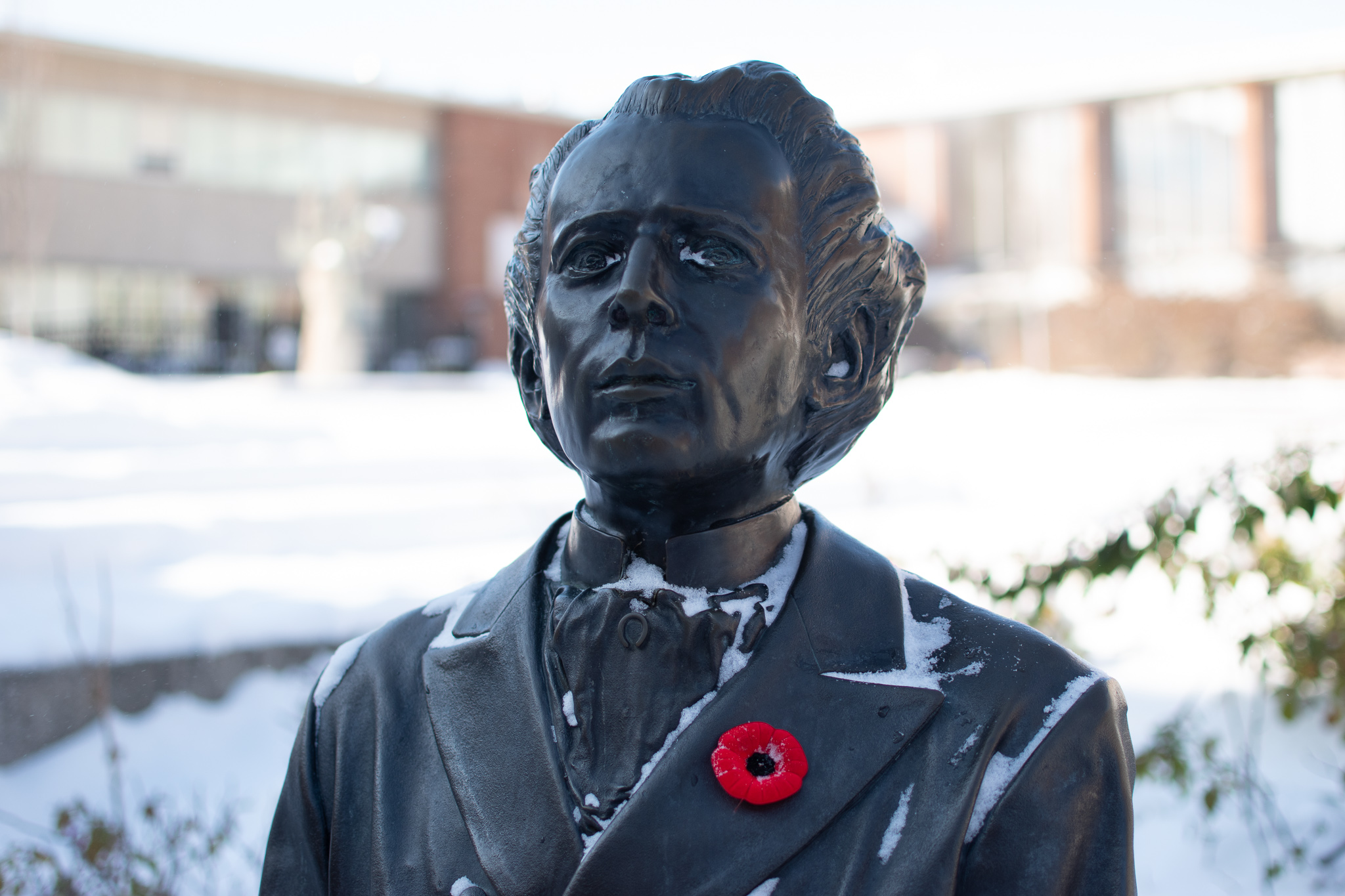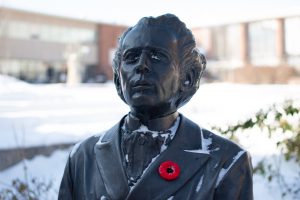Laurier honours those who served in annual Remembrance Day ceremonies


Last Monday, Nov. 11, marked 101 years since the end of the First World War, a conflict which saw the death of over 61,000 Canadians, and the wounding of over 172,000.
To commemorate, Wilfrid Laurier University, as well as the Laurier History Students’ Association, hosted a number of events, including its annual Remembrance Day ceremony in the concourse.
The ceremony included the traditional reading of In Flanders Fields, in both English and French, remarks from professors, a performance of The Last Post by a Laurier music student — and finished with a moment of silence, followed by the famous trumpet piece, the Reveille.
When talking about Remembrance Day, however, it is important to consider the distinctions between remembering and commemorating these events, especially in how they pertain to today.
“When they concern historic events, such as our annual collective ‘pause’ at the [eleventh] hour of the [eleventh] day of the [eleventh] month that marked the Great War’s end 101 years ago, they become conscious, public, national choices to step out of our busy twenty-first century lives and reflect on the past,” said Cynthia Comacchio, a Laurier professor in the department of History, in an email statement.
“How often do we do so actively and purposefully, as a society, as a nation? We do so to remember and commemorate those who stepped out of their own undoubtedly busy lives, postponing or pre-empting forever their personal plans for a ‘greater good’, deserve at least that—a moment of reflection, gratitude, and sorrow for what they sacrificed.”
And, she notes, “for what their sacrifice signifies for us.”
As a historian, Commacchio describes herself as “cynical” when it comes to the lessons learned from, commemoration and remembrance of events like the First World War.
One of the key takeaways she feels is not acknowledged is the “catastrophic outcomes” of catalysts such as “racism, hyper-nationalism, exclusion, hatred [and] violence,” which she believes is numbed by the progression of time.
“Amnesia is a debilitating, constricting and dangerous condition — even more so for a nation than for individuals,” Commacchio said.
“This is why we remember, and commemorate, all the men and women — mostly very young — who left homes, families, schools, reserves, farms and factories to participate in two world wars, and all too many others, as well as those who continue to do so.”
Professors, such as Peter Farrugia on Laurier’s Brantford campus, believes that these discussions of commemoration are all the more important to explore and evaluate, given the divisive nature of recent events.
“The recent controversy over Don Cherry’s Coach’s Corner comments … underline that we need to be careful when we approach this topic,” Farrugia said in an email statement.
“I wear the traditional red poppy, one of my research areas is the social and cultural impact of the two World Wars and I have been involved in a number of battlefield tours over the years. But I find myself getting exasperated at times that there is an expectation that everyone should mark Nov. 11 in the same manner.”
Farrugia argues that poppies, traditionally a symbol of remembrance and commemoration, have become more associated with politics instead, which he calls “a shame.”
“Furthermore, it seems to me that those who died in the World Wars (as well as other conflicts in which Canadian troops have served) died to preserve a way of life, a set of values at the core of which is freedom of expression,” Farrugia said.
“In the same way that me wearing a poppy does not make me a war monger, choosing not to wear a poppy does not make me a hater of the military or my country.”
As well, he agrees that, in “every act of remembering”, there is a similar pattern of forgetting that begins to take its toll — a pattern which he endeavors to unravel.
“Some stories have been told and others have often gone unspoken. I have been encouraged in recent years by the willingness of Canadians to explore some of those less well-known stories, to examine the good, the bad and the ugly when it comes to war,” Farrugia concluded.


